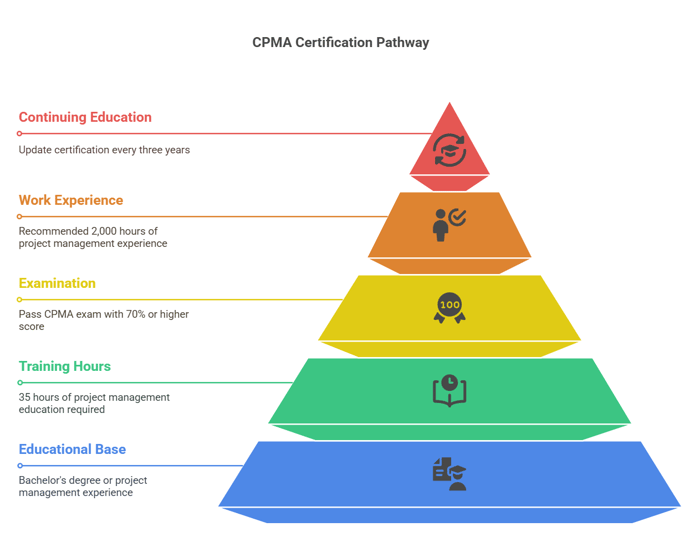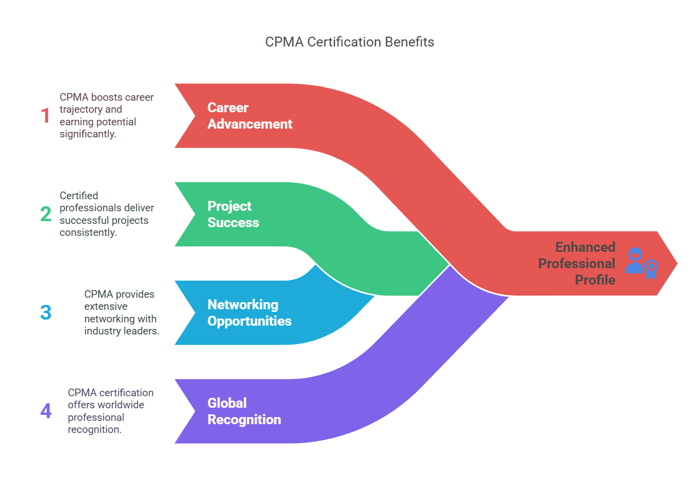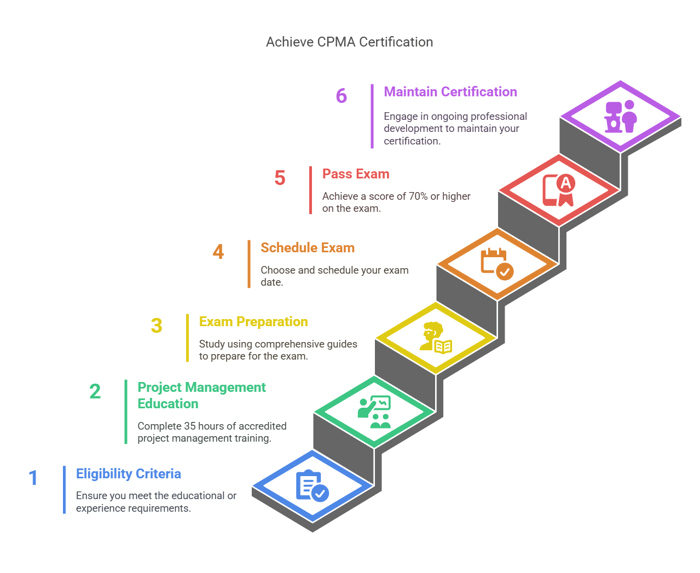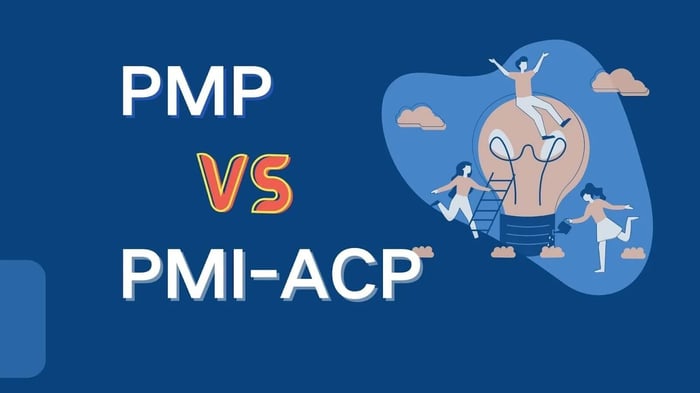Table of Contents
- What is the Certified Project Management Analyst (CPMA)? 🤔
- Why Choose Certified Project Management Analyst (CPMA)? 🏅
- CPMA Certification Requirements 📑
- How CPMA Compares to Other Project Management Certifications 🏆
- Key Benefits of Becoming a CPMA 🏅
- Step-by-Step Guide to Earning the CPMA Certification 🎓
- 10 Fun and Lesser-Known Facts About Project Management 🤓
- Pro Tips for Excelling in Project Management 📈
- APMIC: The Best Place for Project Management Certifications 🎓
- FAQs
If you’ve ever found yourself juggling multiple tasks, managing tight deadlines, and dealing with unpredictable project outcomes, you know just how critical project management is. Enter the Certified Project Management Analyst (CPMA) certification—a ticket to mastering the art of managing projects like a seasoned pro. 🏆 But here's the thing: while everyone talks about certifications, few offer the level of depth, recognition, and hands-on expertise like the APMIC Project Management Certifications.
So, buckle up! In this comprehensive guide, we’ll take you through everything you need to know about the CPMA certification, including its benefits, requirements, and how it compares to other certifications in the field. Let’s dive in! 🌊

What is the Certified Project Management Analyst (CPMA)? 🤔
The Certified Project Management Analyst (CPMA) certification is designed for professionals who want to demonstrate their proficiency in project management. It validates your ability to analyze and manage projects across various stages, ensuring they are completed on time, within budget, and to the satisfaction of stakeholders. Whether you’re just starting out or looking to elevate your career, the CPMA provides the essential tools and skills to succeed in the competitive world of project management.
But what sets Certified Project Management Analyst (CPMA) apart from other certifications? The CPMA not only focuses on theoretical knowledge but also emphasizes practical skills that are crucial in real-world scenarios. Think of it as the hands-on, no-nonsense certification that helps you transform your project management approach. 📈
Why Choose Certified Project Management Analyst (CPMA)? 🏅
There are a multitude of reasons why professionals choose to pursue the CPMA certification. Below are some key motivators:
Reason | Why It Matters |
Global Recognition | CPMA is recognized globally, making it easier for you to find jobs anywhere 🌎. |
Increased Career Opportunities | CPMA holders earn higher salaries and are often considered for more prestigious roles 💼. |
Practical Skills | Learn skills that are immediately applicable to your job, not just theoretical knowledge 💡. |
Credibility and Trust | Having a CPMA after your name signals to employers that you are a skilled, committed project manager 🏆. |
Competitive Edge | Stand out in the crowded job market by showing that you have advanced project management expertise 🚀. |
Choosing CPMA means you are stepping up your game, and with the APMIC certifications, you are working with an institution that values quality and integrity in project management education. 📚
CPMA Certification Requirements 📑
To earn the CPMA certification, candidates must meet certain prerequisites. Here’s a breakdown of the core requirements:

Educational Requirements:
A bachelor’s degree in any field. 🧑🎓
Alternatively, a minimum of two years of project management experience can suffice.
Training Hours:
You need to complete a minimum of 35 hours of project management education through a qualified provider, such as APMIC.
Examination:
Passing the CPMA exam is mandatory. The exam consists of 100 multiple-choice questions that cover various aspects of project management. You’ll need a score of 70% or higher to pass.
Work Experience:
A minimum of 2,000 hours of project management experience is recommended, though some exceptions apply.
Continuing Education:
CPMA certification requires continuing education every three years to maintain the certification. This ensures that professionals stay up-to-date with the latest project management trends and techniques.
How CPMA Compares to Other Project Management Certifications 🏆
When it comes to certifications in project management, there’s no shortage of options. So, how does CPMA stack up against other leading certifications like PMP (Project Management Professional) and CAPM (Certified Associate in Project Management)?
Certification | Overview | Target Audience | Prerequisites | Cost |
CPMA | Comprehensive certification focused on practical skills | Aspiring and experienced project managers | Bachelor’s degree or 2 years experience | Varies, but affordable |
PMP | Advanced certification for project management experts | Experienced project managers | 4,500 hours of experience, 35 hours of education | $$$ (High) |
CAPM | Entry-level certification for new project managers | Beginners in project management | 1,500 hours of experience, 23 hours of education | $$ (Moderate) |
While PMP is the gold standard for senior project managers, CPMA serves as a versatile option for those who want hands-on project management experience but don’t yet meet the experience requirements for PMP. On the other hand, CAPM is a great starting point but lacks the depth and complexity that CPMA offers.
Pro Tip: If you're looking to unlock your leadership potential through project management certifications, check out this program and certification guide.
Key Benefits of Becoming a CPMA 🏅
The CPMA certification brings several tangible and intangible benefits. Let’s take a look at what you can expect when you earn this highly regarded credential:

1. Career Advancement 🚀
A CPMA certification significantly boosts your career trajectory. Certified professionals are often preferred for managerial positions and can expect better job offers, increased responsibility, and higher pay. According to Project Management Institute, those with certifications earn 20% more than their non-certified counterparts.
2. Enhanced Project Success Rates 📈
Project managers with CPMA certification have the skills and strategies to minimize risks and optimize resources. Certified professionals are better equipped to deliver successful projects consistently, thus improving their organization’s overall performance.
3. Networking Opportunities 🌐
CPMA opens doors to an extensive network of project management professionals. You’ll be able to connect with industry leaders, exchange ideas, and attend events that will help you stay ahead of industry trends.
4. Global Recognition 🌎
The CPMA certification is acknowledged worldwide, which is ideal if you’re looking to work internationally or with multinational companies.
Step-by-Step Guide to Earning the CPMA Certification 🎓
So you’re ready to take the leap and earn your CPMA certification? Here's a clear, step-by-step guide to help you achieve that goal:

Step 1: Meet the Eligibility Criteria
Ensure you have the required educational background or work experience.
Step 2: Complete 35 Hours of Project Management Education
Enroll in an accredited program like the one offered by APMIC.
Step 3: Prepare for the Exam
Study for the 100-question exam. APMIC provides a comprehensive study guide, making preparation easier.
Step 4: Schedule the Exam
Choose your exam date and complete it at a nearby testing center or online.
Step 5: Pass the Exam
With determination, pass the exam with a score of 70% or higher.
Step 6: Maintain Your Certification
Continue with professional development to keep your certification active.
10 Fun and Lesser-Known Facts About Project Management 🤓
First Project Management Tool: The first formal project management tool was the Gantt chart, created by Henry L. Gantt in the early 1900s. Learn more about Gantt charts.
Project Management's Origins: Project management as a discipline officially emerged in the 1950s with the launch of the critical path method (CPM).
The Project Manager's Job is Stressful: A study by the Harvard Business Review revealed that 70% of project managers report feeling overwhelmed by stress on a regular basis.
The Role of Project Managers in NASA: Project managers played a pivotal role in the success of the Apollo Moon Landing Project. Learn more about NASA’s project management.
A ‘Project’ is Defined as Temporary: According to PMI, a project is temporary, meaning it has a defined start and finish. It is not an ongoing effort.
Project Management Certification Boosts Salary: Certified project managers earn 20% more on average than non-certified ones. Check out salary reports.
Project Management Improves Team Dynamics: Good project management fosters better collaboration and more efficient workflows.
Global Demand for Project Managers: The demand for skilled project managers continues to rise globally, with an estimated 2.2 million new project management jobs expected by 2027.
Successful Projects Have High ROI: Companies with strong project management practices see a 50% higher success rate in project outcomes.
Project Management is Diverse: The field spans across multiple industries, from construction to technology and healthcare.
Pro Tips for Excelling in Project Management 📈
Plan for the Worst: Always prepare for potential setbacks. Risk management is a key component of any successful project.
Keep Communication Open: Transparency is essential. Regular updates with stakeholders help keep projects on track.
Stay Organized: Use project management tools to keep everything organized and on schedule.
APMIC: The Best Place for Project Management Certifications 🎓
When it comes to project management certifications, APMIC stands out as a premier choice for professionals looking to advance their careers. With a strong focus on practical skills and a well-rounded approach to learning, APMIC offers some of the best certification programs in the industry. Ready to elevate your career? Explore our Project Management Certification page today!
FAQs
What is the Certified Project Management Analyst (CPMA) certification?
The CPMA certification validates your expertise in managing projects, focusing on planning, execution, and completion. It's ideal for those aiming for leadership roles in project management.
How long does it take to complete the CPMA certification?
It typically takes 3 to 6 months, depending on whether you’re studying full-time or part-time.
What are the prerequisites for the CPMA certification?
There are no strict prerequisites, but prior experience in project management or related fields can be beneficial.
What are the benefits of earning the CPMA certification?
Benefits include enhanced job opportunities, higher salaries, and industry recognition as a skilled project manager.
Is the CPMA certification globally recognized?
Yes, the CPMA certification is recognized worldwide and meets global project management standards.
Can I take the CPMA exam online?
Yes, many CPMA programs offer online exams for flexibility and convenience.
What is the cost of the CPMA certification?
The cost typically ranges from $500 to $1,500, depending on the program and format.
How can APMIC’s CPMA certification help my career?
APMIC’s CPMA certification can boost your career prospects by equipping you with global project management skills and increasing your earning potential.





